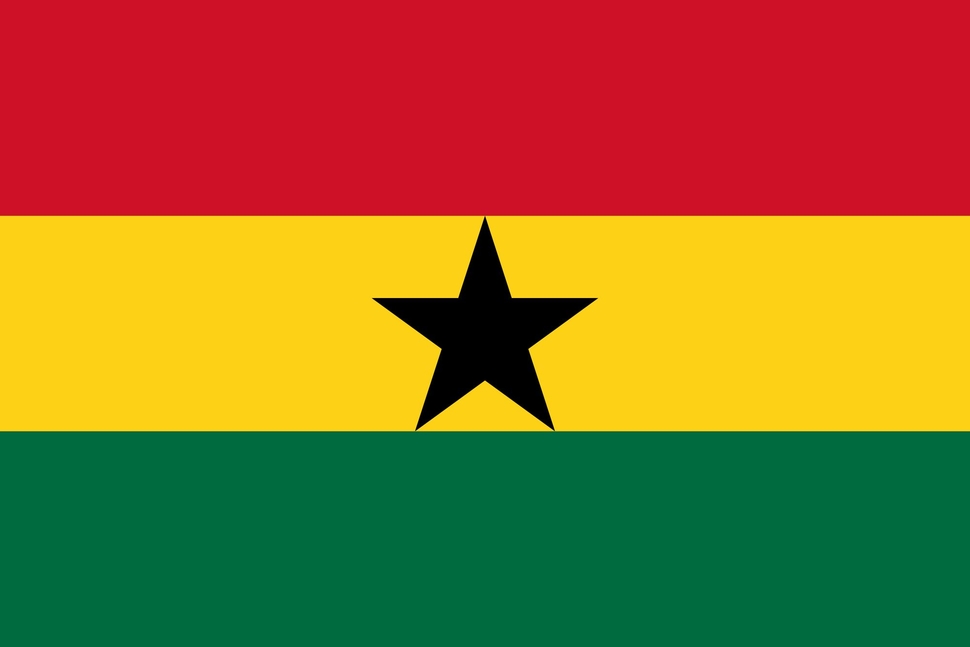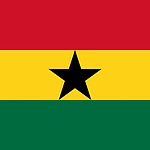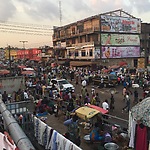POPULATION
As we were going to speak with different ethnic groups in Ghana, we found it very useful to know their habits and manners before we actually would meet them.
The people of Ghana may be said to belong to one broad group within the African family. There is however a large variety of subgroups. With use of the language most of them can be distinguished from each other. Major important groups of the Ghanaian population can be divided in three groups, the Akwamu (Eastern Coast), the Ashanti (inland) and the Fante who were spread over Ghana. The original inhabitants of Ghana are the so called Akan people, who are still the major part of Ghanaian society.
Although English is the official language, there are eleven spoken languages, or so called dialects. The major part of the population is Christian followed by Muslims and traditional beliefs. Atheists are not understood. The population is young. The population pyramid is stated to be in phase 2, which is an expanding population. According to the CIA fact book, the median age is 21 years old. HIV/AIDS still plays in important role in the mortality rate of the country [CIA, 2015].
HISTORY
We knew what the Dutch colonialists had done to this country and we thought that the acts of our ancestors could have an influence of how the Ghanaians think about us. Whether it would be positive or negative, they definitely have prejudices that better can be clear, than forgotten about.
The history of Ghana cannot be told without reference to the Dutch, who are known in Ghana to have been the first European power to challenge Portugal on the Ghanaian coast from the 1590s onwards [van Kessel, 2002]. Before then the Portuguese, who first arrived on the Ghanaian coast in 1471, had enjoyed a monopoly of trade for one whole century. From that period on, the Portuguese built a castle, see "Figure 15. Cape Coast Castle" on page ?1, which was the first trading post built on the Gulf of Guinea. The Dutch took over all the Portuguese Gold Coast in 1642. The Dutch took care over the trade till 1814, and all the possessions of the Dutch were taken over by the British Empire in 1872. When the British Empire conquered more land in Gold Coast, they had conflict with the local people. This resulted in four wars between the Ashanti and British colonialists. With the last war, the Ashanti lost Ghana to the British colonialists resulting that Ghana became a British colony in 1901. Ghana remained a colony till 1957 of the British Empire after became independent. After independence the Ghanaian flag replaced the flag of the United Kingdom. It consists of the Pan-African colours of red, gold and green, which include the black star in the middle of the flag, see "Figure 13. Flag of Ghana" on page ?0. The colours are all in horizontal stripes. The red colour represents the blood of those who died for an independent Ghana, the gold represents the mineral wealth of the country, and the green stands for the country’s rich forests and natural wealth. The black star is for freedom.
POLITICAL
When one goes to another country, it is always wise to immerse oneself in the politics of the country. The way a country is reigned gives a great indicator of how to operate. This is why we found it very helpful to understand at least the principals of the politics in Ghana.
After the independence Kwame Nkrumah became prime minister of Ghana, which became the Republic of Ghana in 1960. A series of coups took place between 1966 and 1981 that resulted in the dictatorship of Jerry Rawlings in 1981. Many Ghanaian people left the country, which led to an economic fall. Many Ghanaians migrated to Nigeria, but one million Ghanaians were forcefully sent back to Ghana in 1983 by the Nigerian government [Clarity, 1983]. Jerry Rawlings wanted to solve the intern problems in his country and adopted a new constitution in 1992, which allowed again multi-party politics [la Pierre, 2004]. The economic situation stabilised, with financial help of the International Monetary Funds (IMF). John Darmani Mahama now leads the country as the sixth president of the Republic of Ghana.
Ghana is after Nigeria the most important economy in West Africa. Ghana profited of the multi-party politics. Also the exploitation of natural resources played a role in the economic rise of the country. The expected oil reserves rise, the country has listed itself on number 26 of the world and the fifth largest of Africa. Many foreign oil companies are interested in the oil fields, which will probably lead to socio economic growth of the country. However, the country faces high budget and current account deficits, and high inflation led to deprecation of the currency [gov.uk, 2015]. The population is unhappy with the current living standards and perceives they are not reaping the benefits of oil production because of political corruption. Which is a challenge for the sitting president Mahama to solve this [Forbes, 2014].
CONCLUSION
There were expectations that communication with locals could be difficult, because they speak another language. To solve the communication problem there is need of a interpreter. However, the Ghanaian people almost all speak English as their second language. The only time we really needed an interpreter, was when we visited the cocoa farmers. Their education level is not so high and therefore they only speak in their local language.
This is however changing. When we spoke to the children of those cocoa farmers, it became clear that those children have had a higher level of education. The population of Ghana is young, which would make it easier to communicate, because the minor group is young too. Better communication will benefit the report in a positive way.


